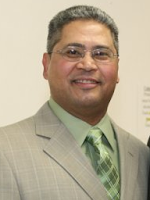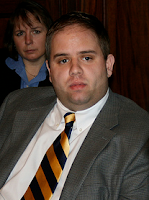Take My Council, Please: We Want More…
Monday was a night of stunning defeats and equally stunning chutzpah. A dozen or so cops filled the council chamber ostensibly as a show of solidarity ahead of the civilian review vote. Other measures up included the trash fee, a petition to extend council terms and other measures that were liberated from committee.
Lee Erdmann, the city’s Chief Administrative and Financial Officer briefed the council on finances first. Essentially, the city projects, based on revenue estimates and expected state aid to have a $40 million deficit. Erdmann told the council that he and others in the mayor’s administration had pared that down to about $16 million. That reduction came through department reduction and changes to health and pensions. It also assumed that there would be additional revenue from the trash fee.
As it stands now, the mayor’s office expects to request that roughly $13 million be used from stabilization funds to cover most of that gap. Additional reductions and consolidations, thus far undetermined, unused overlay account money and would a 2% increase on the hotel tax would cover the rest. The increase would put Springfield at the same rate as Cambridge and Worcester, but still under Boston’s rate.
Erdmann also indicated that the city would seek concessions from labor, but would do so primarily to avoid layoffs, which may become necessary absent concessions. During the debate at-large councilor Jimmy Ferrera pressed Erdmann for the source of his projections. Erdmann, apparently used to Ferrera’s theatrics, waved off his question, assuring him that he was using the best estimates available given the political and financial situation.
Erdmann also briefly discussed the city’s capital budget, which included replacing 20% of trash bins. Ferrera also pressed the city on why it was spending money to buy new trash bins. Allen Chwalek, the city’s Public Works head, anecdotally mentioned that his own trash bin wore out as all of them eventually will. Chwalek also reminded Ferrera that the current bins were rolled out 12-13 years ago and have an expected life of about ten years.
From there the discussion switched to less controversial items. Boilerplate votes were called on accepting grants for the library, fire, emergency management and elderly affairs departments. A resolve was also passed to support more money from Beacon Hill for Shannon Grants and approval granted to other Shannon Grants, Ward 1 Councilor Zaida Luna sent to committee last time. A report on the Biomass plant was also accepted by the council. Blessings were also granted to a 5 year contract for school food service (after details as to the need were presented to a subcommittee) and to Community Block Development Grant loan guarantee for the renovation of the former Holiday Inn.
A report from the finance committee on the trash was given somewhat before the actual debate on the item itself. Ward 2 City Councilor Mike Fenton, chairman of the finance committee explained how his amended ordinance would increase the discount for seniors, veterans and indigent homeowners to 33% from 25% (the base fee would remain $75). Fenton noted that leaving an additional $3 million gap in the budget was unacceptable.
The new fee ordinance also required trash pickup even if the bill went unpaid and instead place liens against the affected property. As a result tenants of two or three family homes would not lose trash pickup because of their landlord. Additionally, Fenton said, the ordinance included language that would mandate annual review, but rejected an immediate transition to any new system that would be “foreign to people.” Added at-large councilor Kateri Walsh, “People do not want bags.”
Debate on the trash fee was muted as at-large councilor Tim Rooke brought up discrepancies in a trash report Before a vote could be taken on fee ordinance, Rooke invoked Rule 20, yes that rule 20, and stopped all debate pending a financial report.
The main proposal, created by a council president appointed study committee and mindful of Fitchet’s contract, would give Sarno’s oversight board subpoena power. The ordinance, pushed by Ward 4 Councilor E. Henry Twiggs would also create neighborhood caucuses that would nominate board members that the mayor would formally appoint. Twiggs thanked clergy, civic associations, and councilors (though not all of them) for participating in the process.
Ward 5 Councilor Clodo Concepcion, in a surprise of opposition, asserted that cops received proper training and should be trusted. Largely, he echoed Rooke. For Concepcion, a Hispanic council member, this was truly odd, but it does go to show you that race and ethnicity are no guarantee of political sympathy. Perhaps Concepcion was appealing to voters in 16 Acres, which occupies much of his ward.
Ward 6 Councilor Amaad Rivera countered with his firsthand experience among the lower rungs of society. He added that greater trust among the community would only empower the police when crime is “the only business hiring” (a quotable gem, huh?)

Councilor Jose Tosado (via Facebook)
Twiggs made one final plea for passage noting that nothing in the ordinance curtails police activities. Appealing to better police/community relations, he called for passage to ensure Springfield is a place “all of use can enjoy to live in…a city for all of us.” But it was to no avail, the council voted it down 6-7. Lysak, Concepcion, Rooke, Walsh, at-large councilor Tom Ashe, Ferrera and Tosado. The others were in support.
Walsh and Twiggs tried to make the issue about input from people while noting that the mayor’s term was recently extended to four years as of next January. Walsh claimed that having municipal elections only every four years would save money by having less elections (and democracy). However, Ward 7 Councilor Tim Allen deftly pointed out that school committee election would continue to occur on years that would have otherwise included council elections and thusly save nothing.
The trash fee, which had six cosponsors, is simply waiting in the wings. By far the saddest vote was the civilian review board. Sources close to city hall suggest that Twiggs had failed to whip his votes appropriately and that led to the defeat. To succeed on immediate reconsideration will be Herculean task for Twiggs and his allies to change the minds of obstinate councilors.






